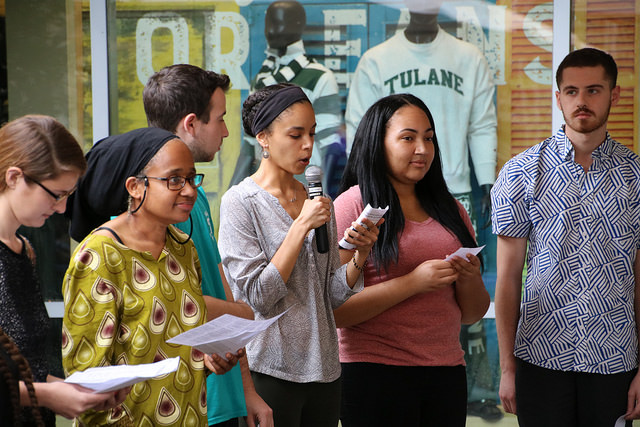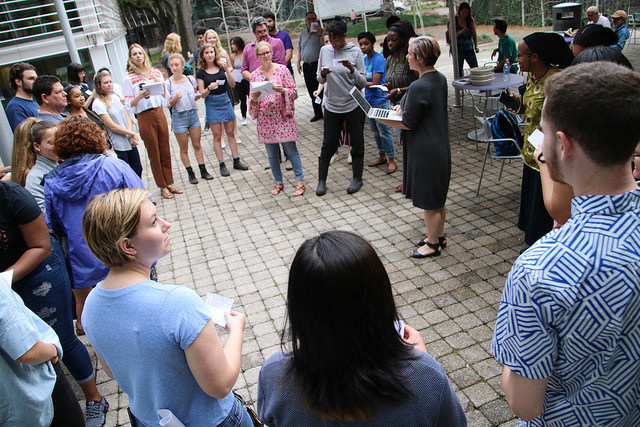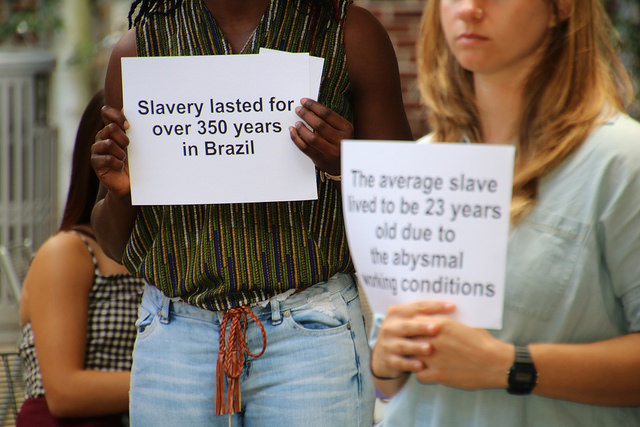3/14/2018
By Megwen Loveless,
Senior Professor of Practice, Department of Spanish & Portuguese
Director, Basic Language Program in Portuguese

Yesterday plain freedom,
The will for power…
Today immense cruelty
Even not free to die…
Fastened at the same chain
- Ironed, dismal serpent -
In the links of slavery.
The last Friday of Black History Month marked the first of a new annual tradition on Tulane’s uptown campus: an emotive recognition of the legacy of slavery across the Americas.
Forming a circle of forty bodies, Tulane and Xavier students, faculty, and staff filled Pocket Park with a bilingual reading of the Brazilian poem “O Navio Negreiro,” The Slave Ship. Written in 1869 by abolitionist Castro Alves, the piece is an epic narrative of the physical and emotional torture experienced by black bodies during the Middle Passage.
Brazil was the last country in the Americas to abolish slavery (only in 1888) as well as the country that imported the most enslaved Africans (an estimated four million, compared to 400,000 here in the United States). The great majority of Africans imported to Brazil were forced into grueling labor on the expansive sugar plantations of the northeast. The social and economic legacy of sugar was reflected in the sweet coconut pralines available for sampling after the event – a bittersweet reminder of the colonial past.
The event, which was organized by the Africana Studies Program and Portuguese Language Program at Tulane as well as the Office of Multicultural Affairs, emphasized diversity of experience and perspective. One by one, students recited several stanzas, first in Portuguese, then in English translation, and the poem slowly unfolded around the open space. At the end of the nearly 40-minute reading, each participant held up a placard with a statistic about slavery in Brazil. Participants held a moment of silence while displaying the signs, forming a ring of solidarity and a memorial to the anguish of the At;antic Slave Trade and Black enslavement around the Americas.
One participant noted how important it was to see that students “don’t have to be proficient [in Portuguese] to bind together to recognize issues of geographic and social importance.” Indeed, the gathering underscored interdisciplinary connections and how bringing together a range of voices from different areas can help shed new light on history.
For more information or to sign up for next year’s reading, contact Professor Megwen Loveless, mloveles@tulane.edu




